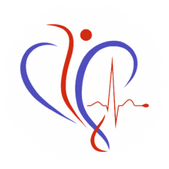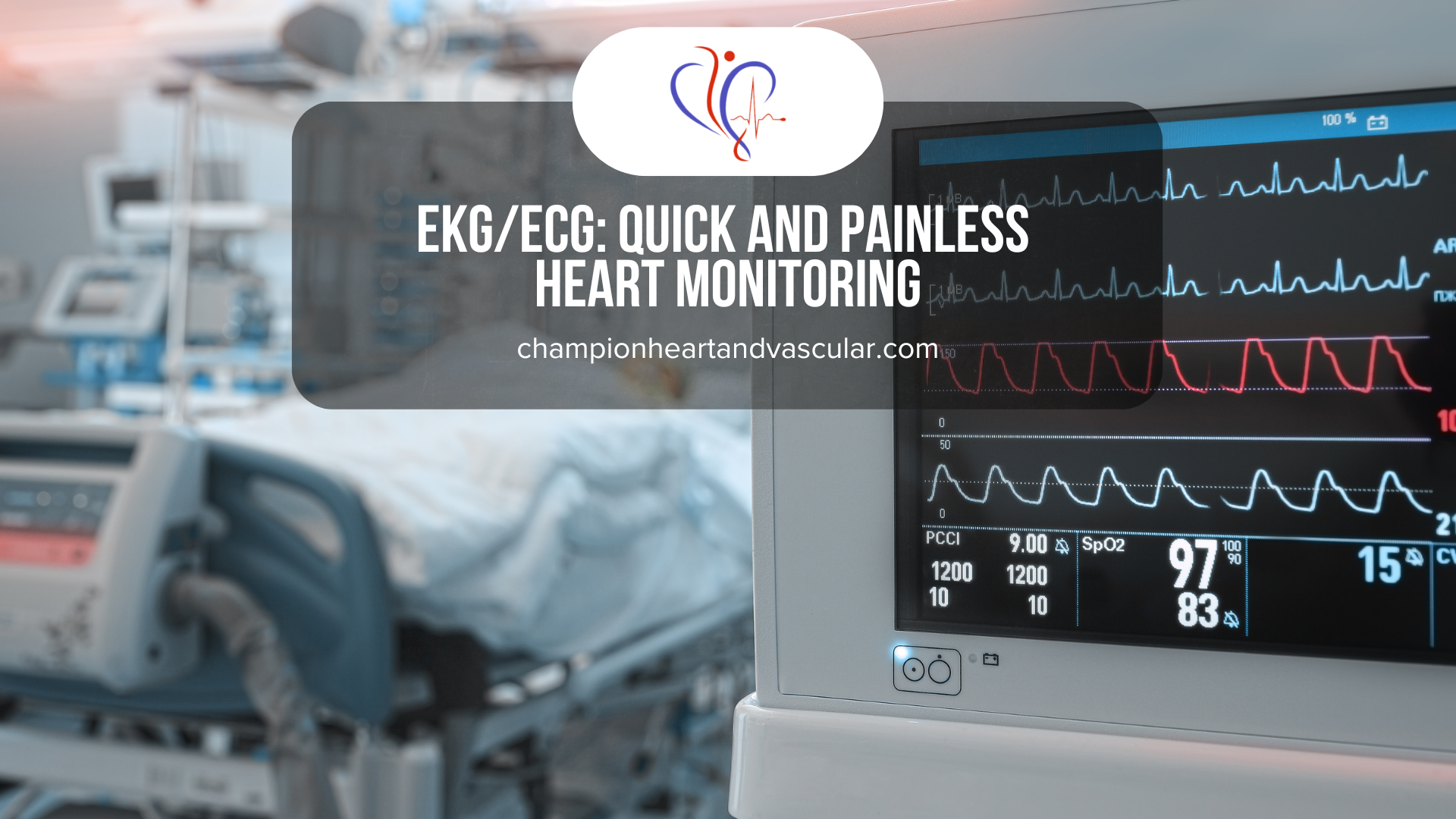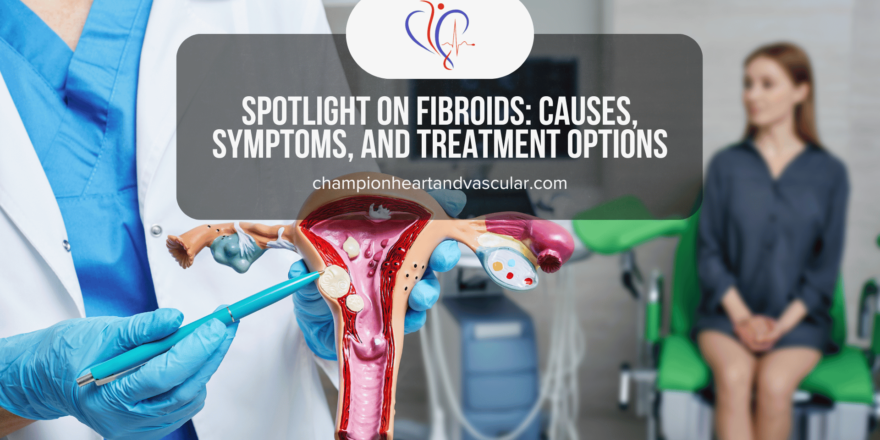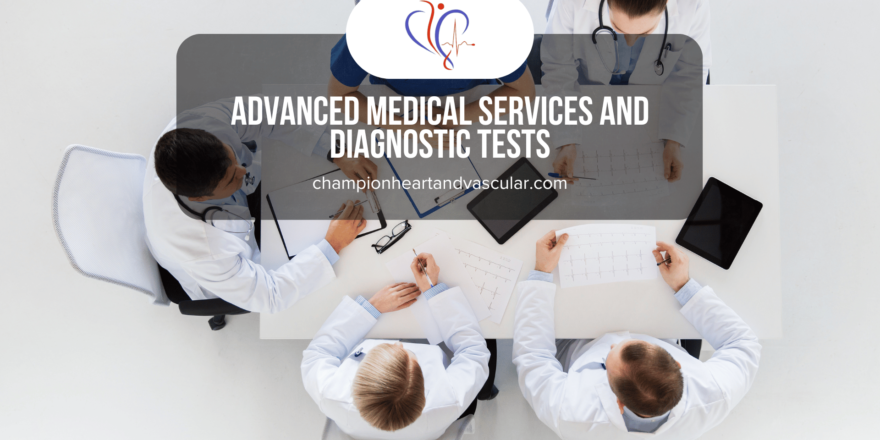Your heart is the powerhouse of your body, working tirelessly to keep you alive and thriving. Monitoring its health is vital, and one of the simplest, quickest, and most effective tools to evaluate heart function is an EKG/ECG (Electrocardiogram). In this blog, we’ll explain what to expect during this test, who should consider getting one, and why it’s essential for maintaining heart health.
What is an EKG/ECG?
An EKG (Electrocardiogram) or ECG is a non-invasive, painless test that records the electrical activity of your heart. It provides detailed information about your heart’s rhythm, electrical impulses, and overall function. The test is commonly used to:
- Detect irregular heartbeats (arrhythmias).
- Assess damage from a previous heart attack.
- Evaluate the effectiveness of heart medications or devices, such as pacemakers.
- Identify signs of heart disease, including blocked or narrowed arteries.
What to Expect During an EKG/ECG?
- Preparation: No special preparation is required. You’ll be asked to lie down and relax.
- Electrode Placement: Small, adhesive pads (electrodes) are placed on your chest, arms, and legs.
- Recording Electrical Activity: The electrodes detect electrical signals produced by your heart, which are recorded and displayed as a graph.
- Duration: The entire test takes 5–10 minutes, making it one of the fastest diagnostic tools available.
- Results: A cardiologist reviews the results, identifying any abnormalities or signs of heart stress.
Who Should Get an EKG/ECG?
- Individuals with Symptoms: If you experience chest pain, shortness of breath, dizziness, or irregular heartbeats.
- High-Risk Patients: Those with risk factors such as diabetes, high blood pressure, high cholesterol, or a family history of heart disease.
- Preoperative Screening: Before undergoing surgery to ensure the heart can handle anesthesia and stress.
- Athletes: For performance evaluation and to rule out hidden heart conditions.
- Routine Check-Ups: As part of annual health assessments, especially for individuals over 40 years.
Why is an EKG/ECG Important?
- Early Detection Saves Lives: Identifying heart problems early allows for timely treatment and prevention of complications like heart attacks and strokes.
- Non-Invasive and Painless: No needles, injections, or recovery time required.
- Affordable and Quick: It’s an accessible test, often covered by insurance, making it easy to prioritize heart health.
- Baseline for Monitoring: Establishes a baseline for future comparisons, helping track changes over time.
Frequently Asked Questions
Q: Is an EKG/ECG painful?
A: No, the procedure is completely painless. You may only feel mild discomfort when removing the adhesive electrodes.
Q: How often should I get an EKG/ECG?
A: Frequency depends on your risk factors and symptoms. Consult your doctor for personalized advice.
Q: What if my EKG/ECG shows abnormalities?
A: Abnormal results don’t always indicate a severe issue. Further tests, such as an echocardiogram or stress test, may be recommended for a clearer picture.
CTA: Is It Time to Check Your Heart?
Your heart deserves the best care possible. Whether you have symptoms, risk factors, or simply want peace of mind, scheduling an EKG/ECG is a quick and effective step toward safeguarding your health.
Contact Us Today:
📌 Locations:
- Oxford, NC: 1614 Williamsboro St | 📞 919-339-4077
- Henderson, NC: 511 Ruin Creek Rd – Suite 106 | 📞 252-573-4223
- Dunn, NC: 710 Erwin Rd | 📞 910-304-1212
📧 Email us: [email protected]
🌐 Visit: championhealthsystem.com
Encourage your friends and family to prioritize their heart health. Share this post and let’s keep the conversation about cardiovascular health going. Answer our poll and tell us—Have you had your heart checked recently?
Tags:
EKG, ECG, Heart Monitoring Test, Cardiovascular Health, Arrhythmia Detection, Heart Attack Prevention, Non-Invasive Heart Testing, Champion Health System, Heart Health Awareness, Electrocardiogram Test, Early Detection of Heart Issues.




